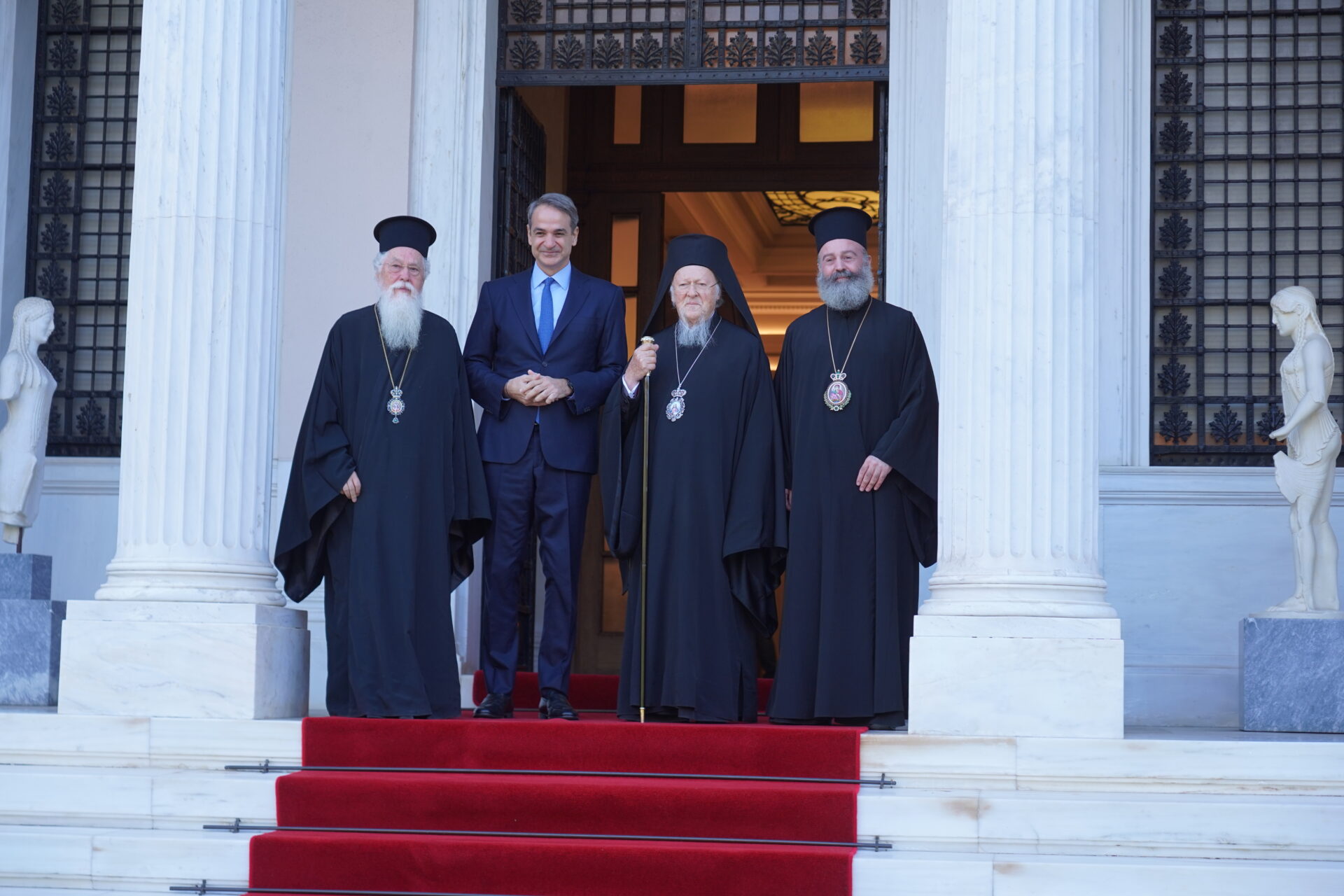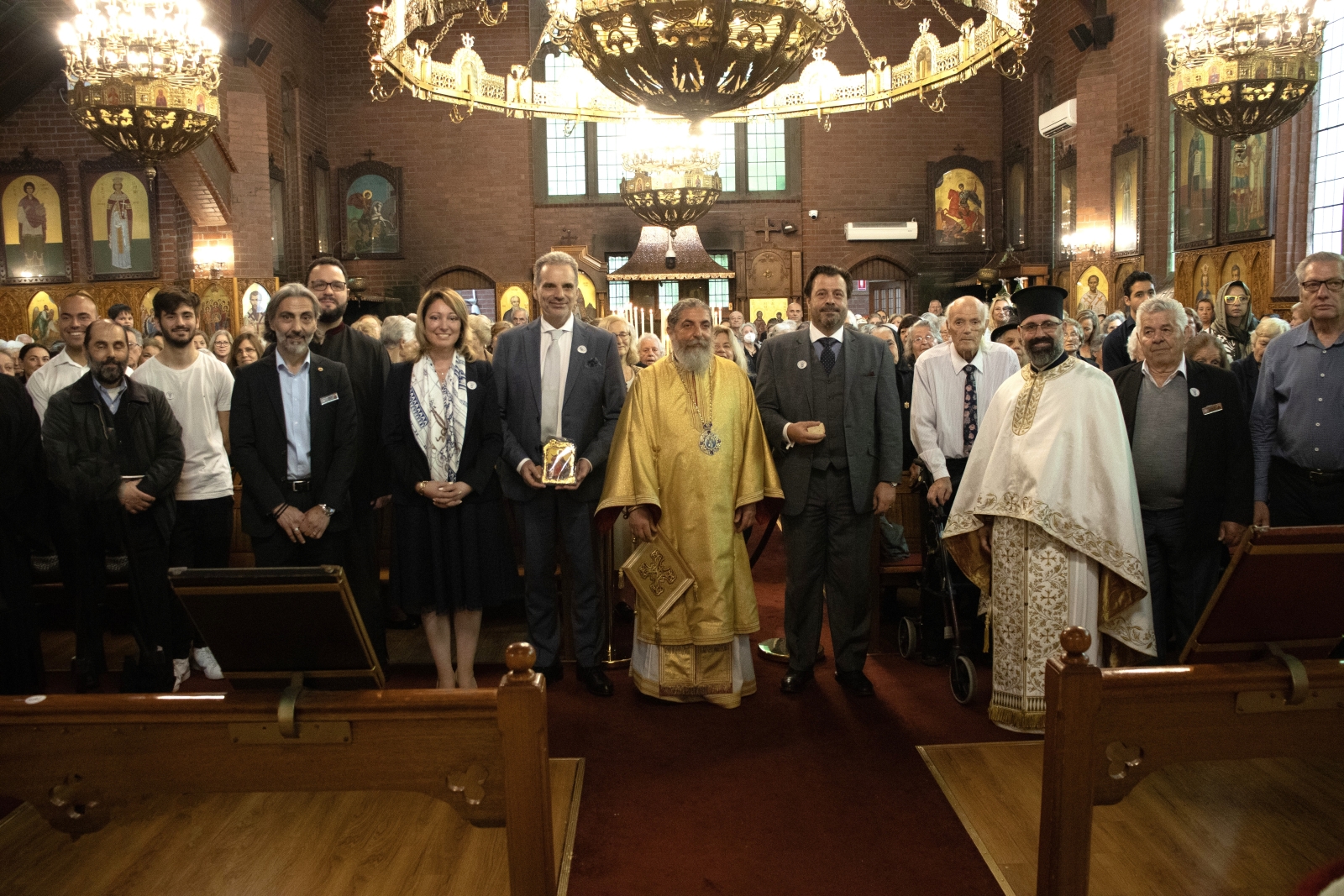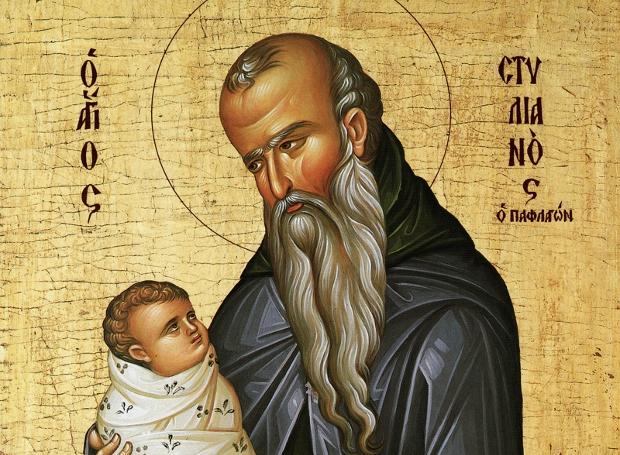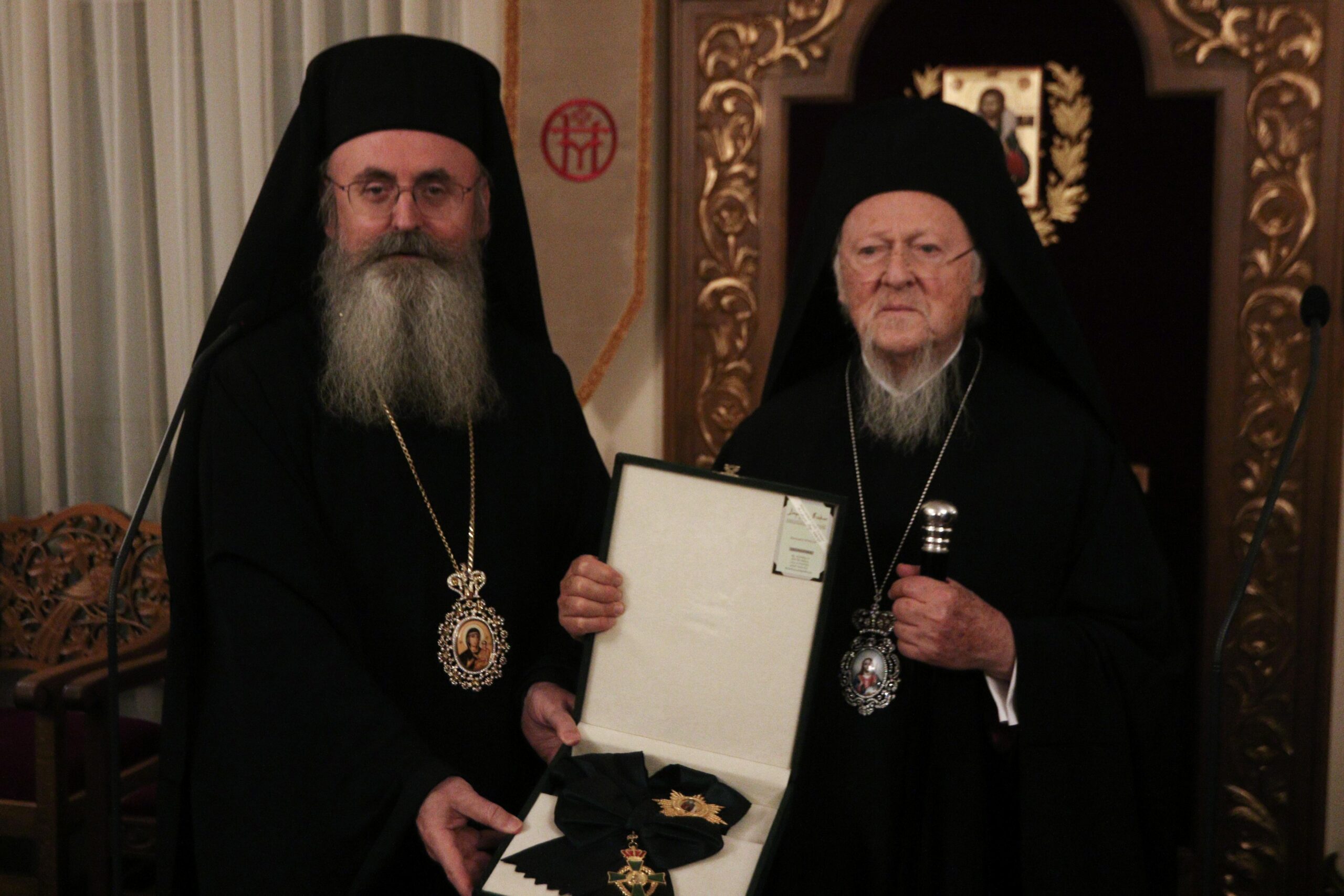Metropolitan Joachim of Bursa: International Meeting of Orthodox Youth proves the unifying power of Orthodoxy


At the International Meeting of Orthodox Youth (ITO), “we are being given an excellent opportunity to realize the ecumenical dimension of Orthodoxy and its unifying power, but, on the other, for each of us to evaluate the richness of his/her own tradition,” said Metropolitan Joachim of Bursa on Friday in front of the 3,500 participants in the ITO 2023 edition held in Timișoara, Romania.
His Eminence Metropolitan Joachim delivered a message on behalf of the Ecumenical Patriarchate at the seventh edition of this event regularly organised in the Romanian Patriarchate.
ITO reunites Orthodox youth from Romania and the Romanian diaspora, from the Romanian historic communities around the Romanian borders and other Orthodox Churches.
Full text of Metropolitan Joachim of Bursa’s message:
ORTHODOX YOUTH CONFERENCE
Timișoara, Romania, 31 August-3 September 2023
Your Eminence Ioan, Archbishop of Timisoara and Metropolitan of Banat,
Your Graces, Reverend Clergy,
Dearest brothers and sisters in Christ,
I need to thank You wholeheartedly for the kind invitation addressed to His All-Holiness, the Ecumenical Patriarch Bartholomew, who enthusiastically responded and announced to His brother in Christ, His Beatitude Patriarch Daniel of Romania, that a delegation from the Ecumenical Patriarchate was going to participate in this Conference.
I notice with pleasure and satisfaction that delegates from sister Orthodox Churches, from Monastic Communities, from Orthodox Theological Schools, Academies and Institutes, from International Church Organizations, International Youth Associations, and Cultural Foundations have come together during these days in this great International Meeting of Orthodox Youth, to get to know each other, for personal communication and for dialogue.
On the one hand, we are being given an excellent opportunity to realize the ecumenical dimension of Orthodoxy and its unifying power, but on the other, for each of us to evaluate the richness of his/her own tradition. This is why we feel particularly blessed and grateful to be nominated by His All-Holiness, our Ecumenical Patriarch Bartholomew, as His representatives to join this successful conference.
His All Holiness always underlines to the youth their personal place and role in the theanthropic body of the Church, according to the gift that each has been given or will be entrusted with in the future by God. His All-Holiness tirelessly invites Orthodox young people to recognize as soon as possible their special talent and their role in the Church and to willingly respond to the calling of God.
In the same context, I would like to underline that, according to the Message of the Holy and Great Council of the Orthodox Church, held in 2016 on the island of Crete: “The Orthodox Church addresses herself to young people who seek for a plenitude of life replete with freedom, justice, creativity and also love. She invites them to join themselves consciously with the Church of Him, who is Truth and Life. Invites them to come, offering to the ecclesial body their vitality, their concerns and their expectations. Young people are not only the future, but also the dynamic and creative present of the Church, both on a local and on a world-wide level”.
The Communique of the Council also states, “The Holy and Great Council addresses itself with particular love and care to all young people. Amid the mutually contradictory definitions of “youth”, our most holy Church presents the words of our Lord: “Unless you turn and become like children, you will never enter the kingdom of heaven” (Matt 18.3) and “whoever does not receive the kingdom of God like a child shall not enter it (Luke 18.17), as well as what our Savior says about those who “prevent” (Luke 18.16) children from approaching Him and about those who “scandalize” them (Matt 18.6).
To young people, the Church offers not simply “help” but “truth,” the truth of the new divine-human life in Christ. All Orthodox youth should become aware that they are bearers of the centuries-old and blessed tradition of the Orthodox Church and also the continuers of this tradition, who will courageously preserve and will cultivate in a dynamic way the eternal values of Orthodoxy in order to give life-giving Christian witness. From among the Orthodox young people will come the future ministers of the Church of Christ. The young people, thus, are not simply the “future” of the Church, but also the active expression of her God-loving and human-loving life in the present”.
The Ecumenical Patriarchate is not a national Church but embodies the ecumenical spirit and the universal dimensions of the Christian Gospel; it is a Church where the ethnic, linguistic and cultural expression of its members is considered to be its wealth. Last year, it organised a similar Orthodox Youth Conference with participants from several Eparchies, and I would like to share with you the headlines of the main subjects discussed during this Conference:
- The Orthodox Church is offering a new proposal for life and freedom in response to the dramatic reality of our world. Far from violence and hatred, dogmatisms, absolutisms and superficial ethics, the Church witnesses the Word of the Cross and the Resurrection. Our Church promotes the truth of life in Christ, the genuineness of inter-personal relationships, respect for human rights, encourages volunteerism, cultivates respect towards the natural environment and its Eucharistic use of the world, expresses the word of hope in response to anthropological and bioethical dilemmas and the utilitarian logic of science and of technology.
- Facing modern globalization, the Church is called to resist pressures towards inhumanity that are brought about by strict economic considerations. The Orthodox Church is called to remain faithful to Her founder and His particular relation to the “workers and the overburdened”; to participate in a globalization with a human face and to operate as a place of the “culture of the person”, beyond economic considerations; contribute to the functioning of institutions of support and solidarity, embodying always the Christian philanthropic spirit, the love of the good Samaritan and affection towards every individual; where particular cultural identities can be preserved and operate as a vehicle for communion.
- The problem of loneliness is particularly present in modern society, where the dysfunctionality of human relations and the absence of solidarity within the community are manifest. The Orthodox vision of life, in the context of loneliness, is the call to active and living participation in the life of the Church. In the Orthodox Church, the Truth is not just “something” that is understood theoretically by the intellect, but is communion and a relationship with Christ and with fellow human beings.
- We believe that the Christian must be creative and loving, open and dynamic, an illumined person who affirms life. In this context, in our conference we focused on the value of dialogue, which is the real acceptance of the “other”, with his or her difference and real respect for their freedom. We consider the word “openness,” openness to what is different, towards other Christian confessions, towards other religions, towards other civilizations, towards our fellow human beings in general, to be the essential meaning of our identity. A closed-off Orthodoxy not only does not correspond to our most authentic traditions or express the ethos of ecclesiastical freedom, but also ignores universal values, the creation of which the Church has substantially contributed to. No possibility for a real Orthodox Christian witness exists in the contemporary world without openness. The future belongs to those that love their own tradition, and, for this reason, respect the traditions of the others.
- In the age of rapid digital communication, we, the Orthodox Christians, are called to prudently use the capabilities which new technologies offer for the spreading of the Word of the Gospel. In the chaos of information, the Gospel of the incarnated Word of God, which is closer to each of us than we are to ourselves, calls us to a life of genuine personal communication through which, and only which, can the need for communion with other persons be satisfied.
In conclusion, I need to thank the authentic, dynamic, and young-at-heart Ecumenical Patriarch Bartholomew for the opportunity He gave to us to participate in this conference; for the heart-felt Abrahamic hospitality of the Romanian Orthodox Church and particularly the Archdiocese of Timisoara and Metropolis of Banat and; for the experiences that we live these days here in Timisoara, the Cultural Capital of Europe.
I need to address many many warm thanks and congratulations to His Eminence Ioan, Archbishop of Timisoara and Metropolitan of Banat, and to all those who worked, visibly or behind the scenes for the success of this synaxis.
Photo credit: Basilica.ro / Mircea Florescu
Source: basilica.ro





